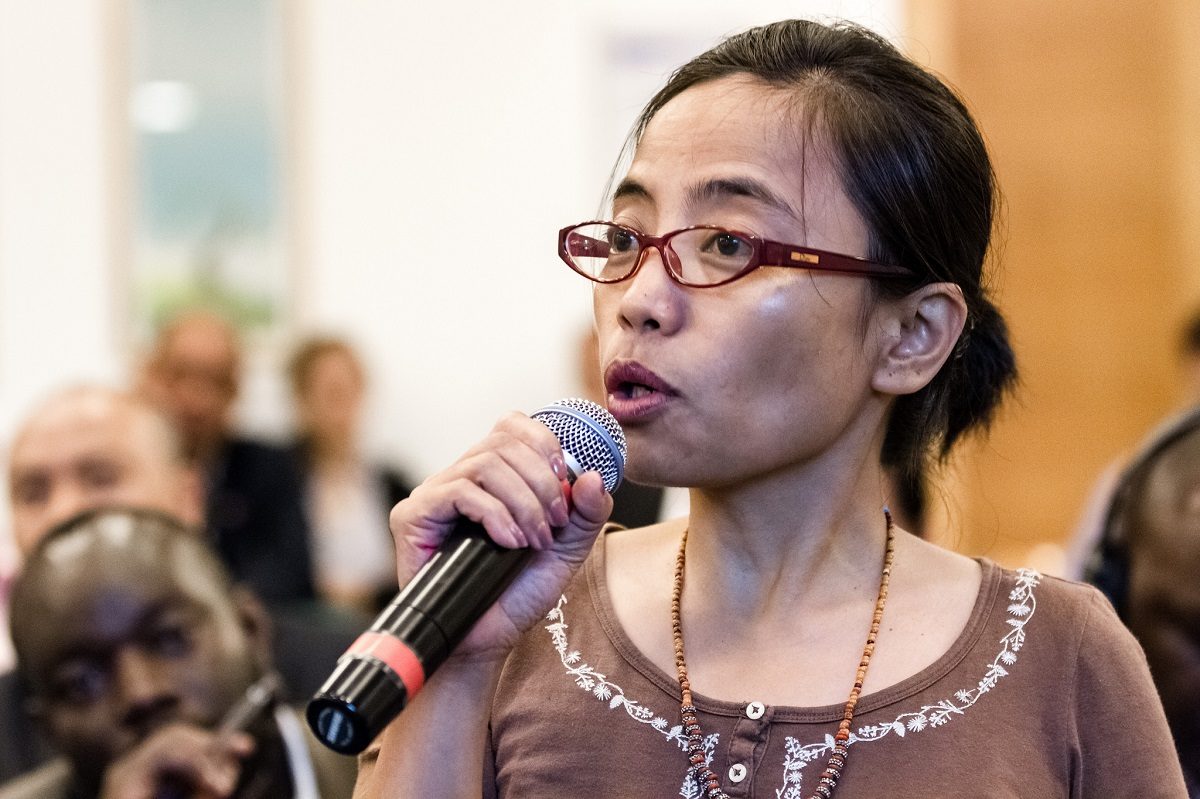- The slow vaccination rollout in Indonesia is hitting its Indigenous communities, among the most vulnerable parts of the population, particularly hard.
- Possession of a national identity number is required to receive a COVID-19 vaccination, but many Indigenous people don’t have one.
- To date, just 20,000 of the 20 million members of the Indigenous Peoples Alliance of the Archipelago, the biggest advocacy group for Indigenous Indonesians, have received their first COVID-19 shot.
- Indigenous rights advocates say the lack of an identity number has always been a problem, even before the pandemic, as it’s also required for accessing health care, voting, and other civic services.
JAKARTA and JAMBI, Indonesia — As Indonesia reels from a devastating second wave of the COVID-19 pandemic, a requirement that vaccine recipients have a national identity number is hampering access to the shots for the nation’s Indigenous population, according to the leading advocacy group for Indigenous peoples.
Only 20,000 of the group’s 20 million members have received their first shot, Rukka Sombolinggi, secretary-general of the Indigenous Peoples Alliance of the Archipelago, known as AMAN, said in a statement on July 30.
According to the government’s COVID-19 Task Force, 40 million Indonesians have received at least one dose of the vaccine; 20 million of them have gotten two doses.
Last month, Indonesia posted record highs in deaths and hospitalizations from COVID-19, overwhelming the country’s medical system.
President Joko Widodo’s administration has declared a target of vaccinating 208 million of the country’s 270 million people. But a lack of ID cards among vulnerable populations is hampering that drive, advocates say.
A recent health ministry decree on vaccine implementation stipulates that having a national identity number, known as an NIK and similar to the social security number in the U.S., is a prerequisite for receiving a vaccine. The number, which appears on the government-issued ID card, is required to access social services and health insurance and participate in elections, among other things, though members of vulnerable communities often lack these ID cards.
Orang Rimba tribe member Mijak Tampung told Mongabay Indonesia that more than half of the members of his community in the Makekal Hulu forest in Jambi province, on the island of Sumatra, lack an ID card.
On July 29, a group called the Civil Society Coalition for Access to Vaccination for Indigenous Peoples and Vulnerable Groups sent a letter President Widodo and other government officials asking that the lack of an ID card not be a barrier to accessing vaccines.
For Indigenous people who live in hard-to-access areas in the nation’s interior and outer islands, the requirement to have an NIK would be a significant barrier to access, Rukka said.
“The government needs to take discretionary steps because this is a matter of people’s lives, not just a matter of elections,” she said. “For Indigenous peoples, managing an NIK in normal times is difficult, even more so during a pandemic.
“Vaccination access must be expanded and prioritized for those who really need it,” she added.
While Indonesia’s Indigenous peoples coped relatively well at the start of the pandemic last year, Rukka said, the newer Delta variant is making inroads into many communities.
COVID-19, she said, had spread to Indigenous communities in Aru Kayau, North Kalimantan province; Lamandau, Central Kalimantan province; Tana Toraja and North Toraja, South Sulawesi province; Sigi, Central Sulawesi province; and Aru Islands, Maluku province.

Another obstacle is the lack of public education campaigns about vaccines to Indigenous communities.
Mijak said vaccine misinformation had spread to his tribe in Jambi, helped by the lack of a government campaign to educate people about the vaccine.
“The handling of COVID-19 is moving slowly, especially for Indigenous people in the interior,” said Wawan, a member of the Rambang Kapak Tengah Indigenous community in Muara Enim district, South Sumatra province.
This story was reported by Mongabay’s Indonesia team and first published here on our Indonesian site on Aug. 1, 2021.
Banner: Rukka Sombolinggi, AMAN’s secretary-general. Image by Roberto Cenciarelli for FAO/Flickr.
